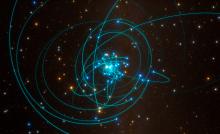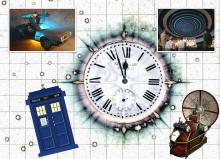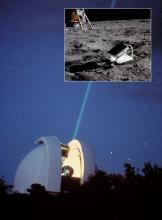Listen to today's episode of StarDate on the web the same day it airs in high-quality streaming audio without any extra ads or announcements. Choose a $8 one-month pass, or listen every day for a year for just $30.
You are here
Time Dilation II
If you’re driving up the highway from Dallas to Minneapolis, you might rely on the Global Positioning System to help get you there. If GPS didn’t take the equations of Albert Einstein into account, though, you might wind up in Rapid City, or Milwaukee, or even the middle of Lake Michigan. That’s because the system’s timing would be off — an error that adds up to several miles per day. That would quickly make the system useless.
The effect is known as time dilation. It comes from Albert Einstein’s theories of Relativity. They tell us that clocks tick at different rates relative to each other, depending on their speed and the gravitational pull they feel. So clocks on spacecraft appear to tick at different rates from those on Earth. An astronaut on the International Space Station, for example, ages a few millionths of a second less every day than the people on Earth.
GPS satellites orbit at much higher altitudes than the space station, and their orbital speed is less. When you combine the effects, a clock on a GPS satellite gains about 38 millionths of a second per day compared to its ground-based counterparts. GPS computes locations based in part by comparing the time on different satellites. So the clocks on these satellites are adjusted to tick that much slower than the clocks on the ground. That keeps all the clocks in sync — and you on the right path to your destination.
Script by Damond Benningfield






